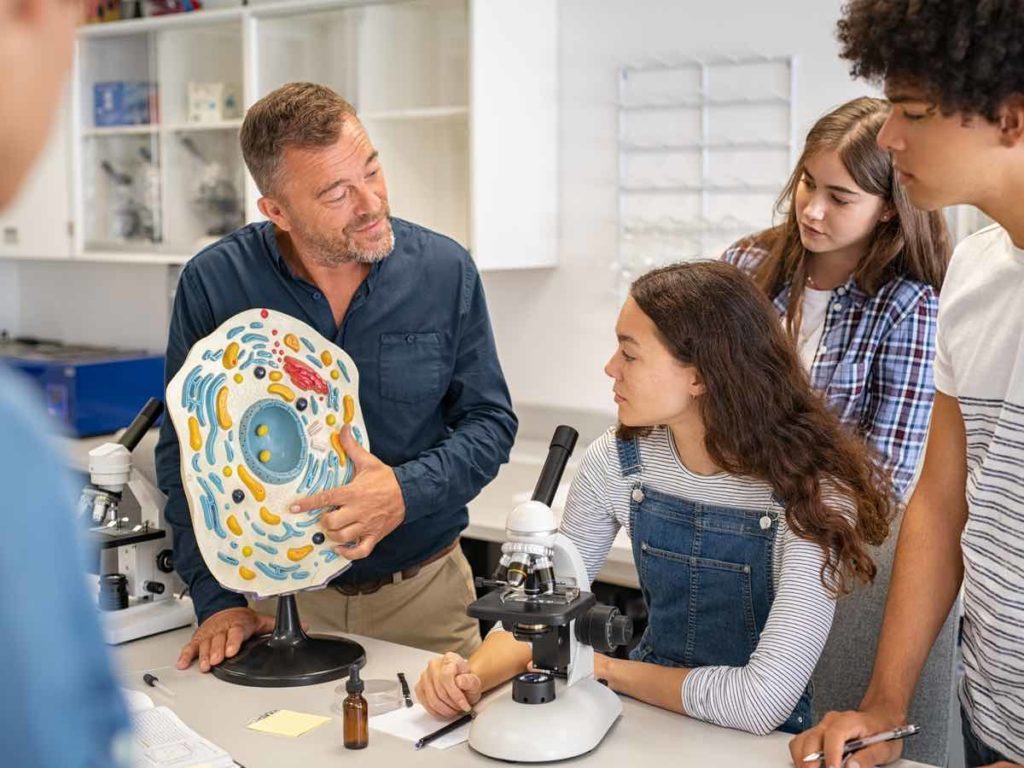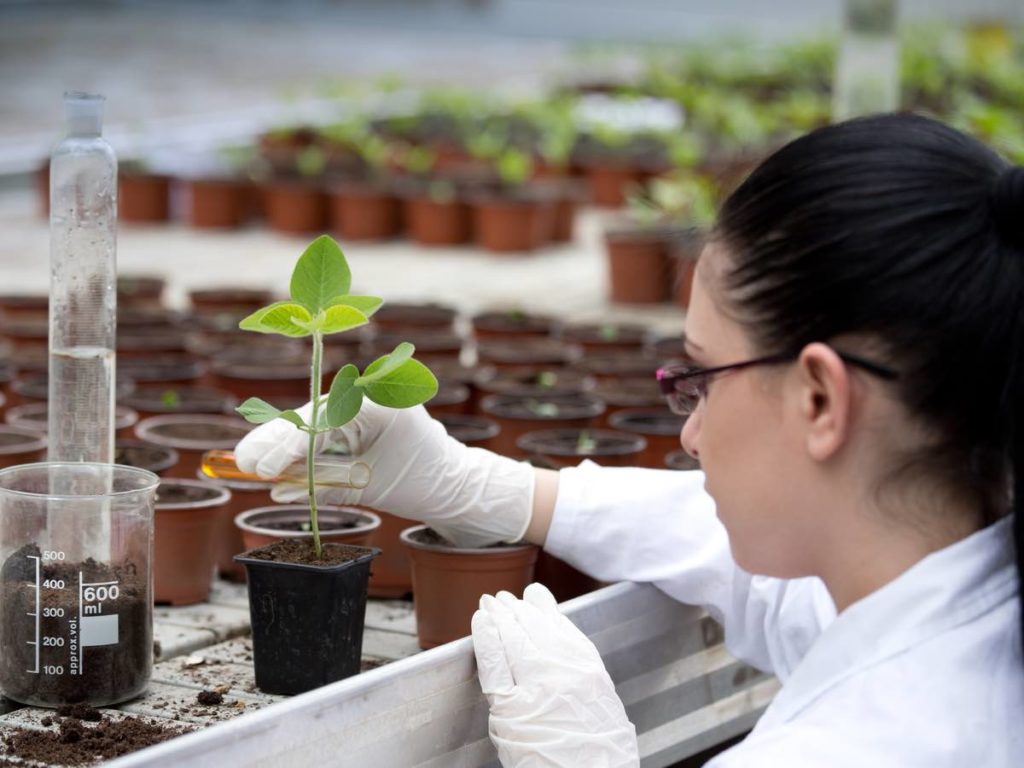Is Biology Still a Good Degree?
One of the majors you are thinking about declaring by the end of your sophomore year of college is biology, although you fear that you might end up as a mad scientist. You know in your heart that you love science and one day would like to have a job in the STEM field. But you may be having second thoughts if a biology degree is right for you.
Biology is a good degree for undergraduates who would like to pursue medical school or earn a master’s in the healthcare field. However, with so many majors available, a bachelor’s in biology can open doors to various career opportunities. Biology, as a degree, is suitable for hard-working students.
Since biology is considered a STEM major, having a bachelor’s in it can help turn your resume into a complete standout and make potential employers lean more toward you than other job applicants.
If biology is at the top of your list of majors, continue reading. In this post, we will talk about some of the most important matters all college-bound teeners need to know about earning a biology degree. You will have a much better idea of whether or not this major should be the one to declare by the end of your sophomore year in college.

Myths About a Degree and Career in Biology
A lot of college-bound teens or freshman or sophomore college-level students stay away from biology because of the many different misconceptions about it. For instance, many assume that having a biology degree puts one in a solitary career spent inside a laboratory, working as a scientist with no life.
You are considering majoring in biology simply because you love science and are looking forward to having a STEM-related career. However, you fear that the unfavorable things associated with a biology career could be true.
Some of those the myths about going for a bachelor’s in biology you might have heard about are:
- Doing nothing but difficult coursework tasks throughout college.
- Spending most of your waking hours inside the laboratory.
- Living a life that’s solitary and lonely.
- Discovering or creating something that can negatively impact human life and the planet.
- Ending up as a scientist after graduation.
- Feeling out of place if you’re a woman because it’s a man-dominated field.
But the good news is that all of these are nothing more than myths.
As a biology student, you will still have plenty of time for extracurriculars and socializing, thus allowing you to become a well-rounded student and, eventually, a competitive career person.
There is absolutely no need for you to be a mad scientist after graduation — armed with a biology degree, you can choose from an assortment of career paths to take. This is most especially true if you attend graduate school later, which is something that can open even more doors to more high-paying job opportunities.
How Do I Know If a Biology Degree is Right for Me?
Majoring in biology is right for degree-seeking students with an interest in having science-related careers as well as attending graduate or medical school after earning a bachelor’s degree. It is the best major for those who wish to study an area of science that they are interested in and can shine in.

You have the first two years of college to decide which major you would like to declare and commit to.
If one of the majors you have shortlisted is biology, then chances are that this particular STEM field is your interest and passion and would like to one day have a career related to it.
Biology is a degree that’s incredibly versatile — proof of this is the number of things you can major in and the variety of career paths you can take after earning it. But it’s also probably because of this why you may be wondering if it’s really the right fit for you or it’s just that you haven’t completely explored your other options.
Answer the following questions with a “yes” or “no” in order to have a much better idea:
- Do you have a love for science and nature?
- Are you interested in studying humans, animals and other living organisms?
- Were your favorite high school courses science and mathematics?
- Do you have the stomach to dissect dead animals?
- Are you fond of working with other people?
- Do you love making keen observations and taking down notes?
- Are you a critical thinker and a natural problem solver?
- Are you planning on entering graduate or medical school after earning a bachelor’s?
If you answered “yes” to most or all of the questions above, then it’s very much likely that you will enjoy your entire college experience as well as a future career with a degree in biology.
Is Biology Hard in College?
While biology is a part of the STEM field, it’s not as difficult as most other disciplines. This is especially true since it doesn’t involve as much math as chemistry or physics. Still, it’s a must for students majoring in biology to devote plenty of hard work and commitment to their studies to successfully earn a degree.
It’s no secret that STEM-related degrees such as physics and engineering are some of the hardest.
Fortunately for someone like you who is considering getting a degree in biology, which is still within the STEM realm, you can sigh a breath of relief knowing that the subject matter is not as challenging as the rest.
Despite this, it’s still a must that you spend two to three hours of study a week for every credit — a course usually consists of three credits. The difficulty of the core courses will depend on the major you choose. So, in other words, you should declare a major that can increase your chances of not only having a great career but also success in college.
Here are some of the biology majors you may choose from:
- Biochemistry
- Biomedical engineering
- Biophysics
- Biotechnology
- Botany
- Ecology
- Entomology
- Evolutionary biology
- General biology
- Marine biology
- Microbiology
- Molecular biology
- Nutrition
- Systematics Biology
- Zoology
Wondering what are good minors for a soon-to-be biology major student like you? Check out the following that you may include in your list when the time to declare a major and some minors are is fast approaching:
- Animal science
- Anthropology
- Chemistry
- Cognitive science
- Disability studies
- Exercise science
- Family studies
- Food science
- Foreign language
- Linguistics
- Medical humanities
- Pre-health studies
- Psychology
- Public health
- Sociology
- Wildlife conservation
When it comes to choosing a minor, there is no need to opt for something that complements a biology major all the time. As a matter of fact, you can pick a minor based on what you are interested in or passionate about. You may also go for one that you believe is fun and exciting and can make earning a degree less stressful.

What Can You Do With a Biology Degree?
A degree in biology can be used for taking various career paths. While the majority of job options are in the STEM field, it’s possible for biology majors to take on other professions. A biology degree can also be used to attend graduate school. Many students complete a biology program to enter medical school.
One of the best things about having a biology degree is that it paves the way toward a fast-growing field with an array of high-paying jobs to choose from, many of which are considered satisfying and rewarding — based on an educational research by the University of Liverpool (Henderson, Stanisstreet, & Boyes, 2007), up to 97% of students aspire a satisfying career in biology.
Here are some of the jobs you may apply for as a bachelor’s in biology holder:
Agricultural and food scientist
- Median annual salary: $74,160
- Job outlook in 10 years: 9%
As an agricultural and food scientist, you are tasked with doing a lot of research and investigations in order to improve not only the efficacy but also the safety of various agricultural and food products and establishments.
Biochemist
- Median annual salary: $102,270
- Job outlook in 10 years: 5%
The primary role of biochemists is to study both the chemical and physical properties of living things as well as various biological processes. Most of their time is spent experimenting in laboratories.
Biological technician
- Median annual salary: $48,140
- Job outlook in 10 years: 7%
Simply put, biological technicians, which usually work full-time in laboratories, work very closely with biological and medical scientists, helping them to conduct various tests and experiments.
Environmental scientist
- Median annual salary: $76,530
- Job outlook in 10 years: 8%
Working as an environmental scientist, you are expected to apply your natural science-related knowledge and skill set to the protection of the environment and, ultimately, human health and safety.
Forensic scientist
- Median annual salary: $61,930
- Job outlook in 10 years: 16%
Basically, what forensic scientists do is assist criminal investigations in collecting as well as analyzing evidence. Besides working during typical business hours, most forensic scientists also work at unusual hours and travel, too.
Genetic counselor
- Median annual salary: $80,150
- Job outlook in 10 years: 26%
As a genetic counselor, you have to work with families and individuals in order to be able to assess their risk for all kinds of inherited conditions, ranging from birth defects to genetic disorders.
Health educator
- Median annual salary: $48,860
- Job outlook in 10 years: 17%
The primary responsibility of health educators is to develop programs that will inform individuals about various conditions that affect well-being. Many health educators work at the community level.
Biology teacher
- Median annual salary: $61,820
- Job outlook in 10 years: 8%
The roles of a biology teacher can range anywhere from preparing lesson plans, providing lectures, assisting students during experiments, administering exams to chaperoning school field trips.
Based on a study by experts in Dicle University and Hakkari University in Turkey, 35% of biology teachers became teachers because they wanted to (Baran, Maskan & Baran, 2015).
Microbiologist
- Median annual salary: $79,260
- Job outlook in 10 years: 5%
Studying microorganisms such as bacteria, viruses and fungi as well as some types of parasites is what microbiologists do. While they usually conduct experiments in laboratories, many of these scientists work in offices, too.
Wildlife biologist
- Median annual salary: $64,650
- Job outlook in 10 years: 5%
As a wildlife biologist, you can expect to spend most of your time in laboratories and outdoors in order to study animals and various wildlife and determine how they interact with their respective ecosystems.
Pharmaceutical sales representative
- Median annual salary: $62,890
- Job outlook in 10 years: 5%
The main role of pharmaceutical sales representatives is to sell pharmaceutical products, thereby meeting the needs of their clients in the process. They spend a lot of time traveling and visiting hospitals, clinics and doctor’s offices.
Science writer
- Median annual salary: $78,060
- Job outlook in 10 years: 12%
Working as a science writer, you are tasked with preparing various instructional media such as manuals, guides and journals in an attempt to disseminate information in a way that everyone will easily understand.
As mentioned earlier, a biology degree is good for undergraduate students who would like to enter graduate school after earning a bachelor’s. Typically, a master’s in biology takes around two years to complete, depending on how many classes per term are taken or whether or not the student has to do a thesis.
While it can be a time-consuming process, getting your hands on a master’s in biology can open additional doors not only to more career options but also to more higher-paying jobs.
The following are some of the jobs available for a master’s in biology holders:
- Administrative assistant
- Arborist
- Biophysicist
- Cellular biologist
- Defense scientist
- Development associate
- Epidemiologist
- Forester
- Geneticist
- Geographer
- Physician assistant
- Research scientist
Related Article: List of Top Employable Degrees
Famous People Majored in Biology
Some well-known individuals with a biology degree can be found outside laboratories and other related facilities. As a matter of fact, some of them appear on television as actors, comedians, hosts and reality stars. It only goes to prove that majoring in biology allows one to choose from various career paths.
Earlier, we talked about some of the misconceptions surrounding having a degree and career in biology.
In order to realize that those are nothing but myths, it’s a good idea to determine which people whose names may ring a bell majored in biology in college. You will be surprised that some of them do not look like mad scientists or lead solitary lives surrounded by test tubes and various lab equipment.
Without further ado, below are some celebrities who wouldn’t seem like they’d have a degree in biology but actually do — see which of them you can recognize:
Lisa Kudrow
Comedian Lisa Kudrow is best known for playing the role in the very popular television sitcom Friends. As a matter of fact, in 1998, she became the very first cast member of Friends to win an Emmy Award. Wanting to become an expert on headaches similar to her father, who is a physician, Kudrow earned a biology degree at Vassar College.
Ally Walker
Before becoming an actress who, in 1988, debuted on television via the NBC daytime soap opera Santa Barbara, Ally Walker was working as a scientist in a genetic engineering laboratory located in San Francisco. Walker majored in biology and chemistry at the University of California – Santa Cruz, which is #103 in National Universities by US News.
Drew Pinsky
More popularly known as Dr. Drew, Drew Pinsky is an internist and media personality who hosted the nationally syndicated radio talk show Loveline (1984 to 2016). He also hosted the television shows Dr. Drew on Call and Lifechangers. Pinsky attended Amherst College where he majored in biology and graduated in 1980.
Cat Cora
Familiar with the reality show Iron Chef America on Food Network? Well, the first-ever female Iron Chef is Cat Cora. Now, besides being a chef and a restaurateur, she’s also a television personality, author and contributing editor. Cora earned a degree in exercise physiology and biology at the University of Southern Mississippi before becoming a chef.

Best Schools for a Biology Degree
Some of the best colleges and universities for a biology degree are not only highly ranked but also have excellent biology programs. They are also the ones that offer a wide variety of biology majors and compatible minors. In the US, the best schools for a biology degree are prestigious private and public ones.
There are numerous factors to consider before building a college list, which is why the entire process can be stressful and exhausting. They range anywhere from the cost, financial aid, location, campus life to programs.
And speaking of programs, it’s a good idea to choose a school based on the academic program of your liking.
Someone like you who is looking to major in biology will be more than happy to learn that many colleges and universities in the US offer great biology programs.
So, in order to have a much better idea of which higher learning institutions you should consider adding to your college list as a soon-to-be biology major, all you have to do is check out the Best Global Universities for Biology and Biochemistry 2022 by arguably the most popular and trusted college ranking site, US News.
Here are the best colleges and universities for biology by the college ranker in descending order:
- Harvard University
- Massachusetts Institute of Technology
- Stanford University
- University of California – San Francisco
- University of California – Berkeley
- University of California – San Diego
- University of California – San Diego
- Cornell University
- University of Washington
- University of California – Los Angeles
- University of Michigan – Ann Arbor
- University of Pennsylvania
- Yale University
- Columbia University
- New York University
- Duke University
- Washington University in St. Louis
- California Institute of Technology
- University of California – Davis
- University of Chicago
Thinking about earning your bachelor’s in biology abroad? The good news is that there are many international schools that US News considers some of the best for a biology degree. Some of them are the following:
- University of Cambridge (Cambridge, England)
- University of Oxford (Oxford, England)
- University of Toronto (Ontario, Canada)
- University College London (London, England)
- University of Copenhagen (Copenhagen, Denmark)
- ETH Zurich (Zurich, Switzerland)
- Tsinghua University (Beijing, China)
- Imperial College London (London, England)
- Karolinska Institute (Stockholm, Sweden)
- Heidelberg University (Heidelberg, Germany)
- National University of Singapore (Queenstown, Singapore)
- Sorbonne Universite (Paris, France)
- University of Melbourne (Melbourne, Australia)
- University of Tokyo (Tokyo, Japan)
- Peking University (Peking, China)
Just Before You Enroll in a Biology Program
A biology degree is ideal for students who would like to one day have a STEM-related career, although there are many career paths they could take with a major in biology. It’s also an excellent undergraduate degree to earn for individuals who would like to consider entering graduate school, including especially medical school.
Above, we discussed some of the most important things that someone like you who is considering a bachelor’s in biology should know. Make sure that you weigh the pros and cons of a biology degree before making a decision.
Related Article: Is Math a Good Degree? Myths vs. Facts
References
Baran, M., Maskan, A., & Baran, M. (2015). Physics, Chemistry and Biology Teachers’ Reasons for Choosing the Profession of Teaching and Their Levels of Job Satisfaction with Respect to Certain Variables. Journal of Education and Training Studies, 3(3), 101–110.
Henderson, D., Stanisstreet, M., & Boyes, E. (2007). Who wants a job in biology? Student aspirations and perceptions. Journal of Biological Education (Society of Biology), 41(4), 156–161. https://doi-org.ezproxy.umgc.edu/10.1080/00219266.2007.9656091
Disclaimer: The views and opinions expressed in this article are those of the authors and do not necessarily represent those of the College Reality Check.





